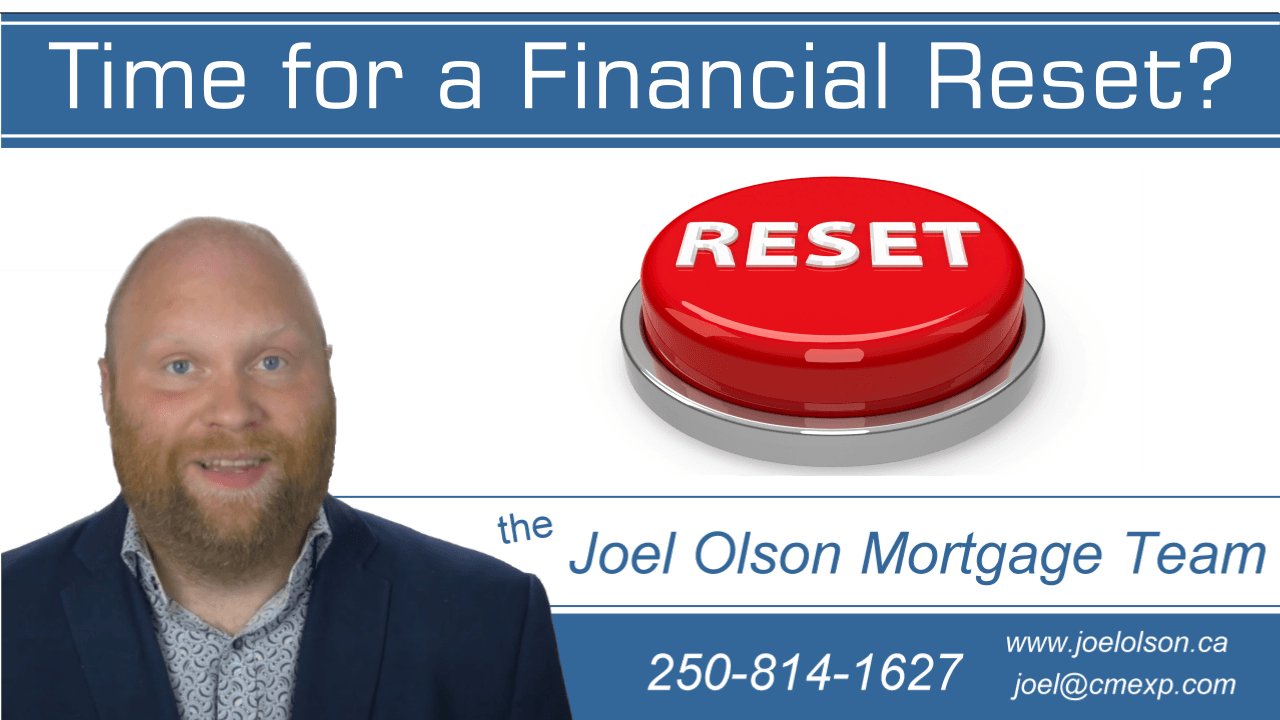Are you ready for a financial reset?

As we come to the end of the year, a lot of people are going to take stock of their current financial situation.
Have they saved enough money this year?
Have they paid down enough debt?
Have they put themselves in a situation where they're moving forward financially?
Or, maybe they're looking forward with anticipation to the New Year...
Maybe there is a job change that's on the horizon.
Maybe there is a kid heading off to college that they have to financially prepare for.
Maybe retirement is on the horizon.
And now is the time to make sure that that can be done in a financially acceptable way.
Whatever it is, people are taking a look at their financial situation and making adjustments and changes to make sure they are in the best position possible.
Obviously, we're in a unique situation in the world where people have seen major benefits on our current world situation and major disadvantages that may have affected them as well.
Now's a great time to look at doing some type of financial reset as it relates to your mortgage and all debts.
What does a financial reset look like?
Number one, what do you have for debt right now?
If you have any debt that's involved with credit cards, that's not being paid off a monthly basis and I'm paying eight 9% or even higher at 20 to 24%...
...if you have loans, maybe there are loans that are somewhere in the eight to 10% range or even in the four to 5% range, whether they be student loans, car loans, or just personal loans, with interest rates being below 2% and in many cases mid 1%, you are going to save a ton of interest by rolling these into the mortgage.
With the vast amount of equity you would have achieved with the escalating housing market, now is a time where there's an opportunity to do so that may not have existed one year ago or even six months ago.
Now is the time to look at putting that debt into your mortgage to save interest but also to vastly improve your monthly payment.
We are seeing clients that are having their monthly cash flow go up by as much as $1500 to $2,000 a month.
How much of a difference would that make your life if you had to pay $1500 to $2,000 per month?
That's only one way of looking at it.
For some people it's just about saving the interest.
Maybe they keep their payments the same but have that loan payment be paid at a much lower interest rate, which means they will save interest and ultimately pay that loan off much much faster.
The second way so may look at a financial reset, is maybe now's the time you're going to look at updating your real estate.
What I mean by that?
Now's the time to look at renovations.
Maybe now's the time to put in those big renovations that you've been deterring because you haven't had enough money... now's the time you have equity to do so.
So if you are within a few years of improving the roof, updating your septic and sewer systems, updating your furnace, etc., now would be the time to take money out to do that.
Perhaps your home would benefit by being completely redone...
...both kitchens and bathrooms make a ton of difference to your value.
Maybe now's the time you look at adding a suite to the home, adding extra income on a monthly basis.
Now's the time where you can do that without having to put any extra cash flow in, even possibly doing an expansion of your home can also be in the cards to add extra money and the renovation, and cost of doing so would more than pay off even though you're increasing your borrowing load.
The third way you may be looking at a financial reset would be using your equity towards investment.
Now, maybe this involves buying another property.
Many people are surprised to know though the equity in their house they may buying the property and putting none of their own money in!
Maybe that involve buying a rental property.
Maybe if you're looking at your kids going into college, maybe you buy them a property that they're going to live in during college that will then become a rental property when they are finished.
In many situations like that, you could do that for as little as 5% down.
Maybe you could be looking at other investment opportunities.
With a wise strategy, you could look at investing into stocks or businesses or other types of investment opportunity that can have a greater yield than the very, very low interest rates you're going to pay on your mortgage.
All of these options are things to look at when you're looking at a financial reset.
If I can help you with any different options or just reviewing your particular situation to see if there's opportunity to do some financial reset, please do reach out.
You could literally see yourself being a completely different situation and going to the New Year in a much, much better way than you've ever seen before!
The easiest way to discuss any strategies is to schedule a time on my calendar here:
https://calendly.com/joel-20/discovery-zoom-call





